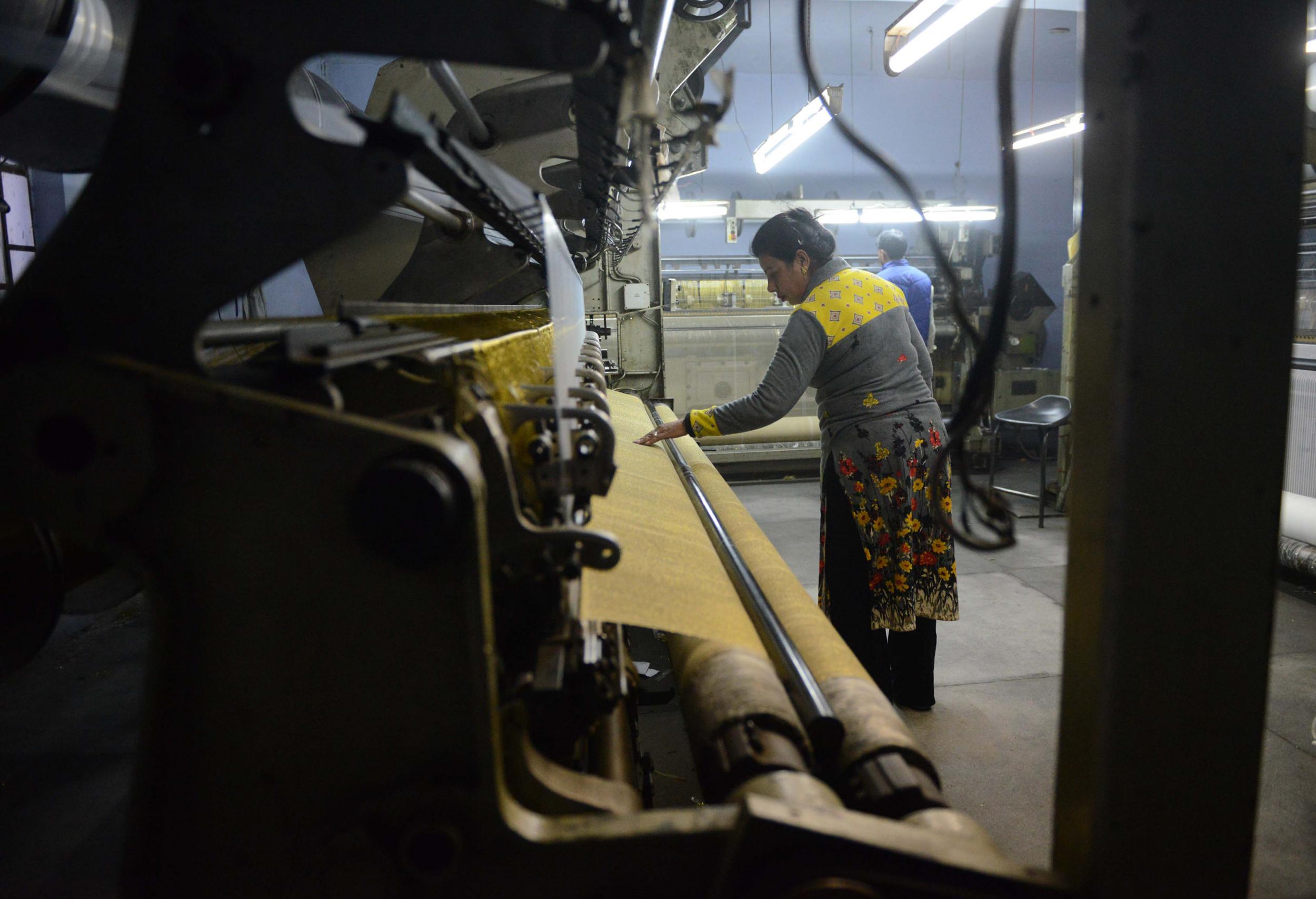Sexual harassment endemic for female workers in garment industry, study finds
'Some of the forms of anti-retaliation workers have reported include factory management suddenly finding workers 'unproductive' and firing them. Harassing them till they resign, refusing overtime work,' says campaigner

Your support helps us to tell the story
From reproductive rights to climate change to Big Tech, The Independent is on the ground when the story is developing. Whether it's investigating the financials of Elon Musk's pro-Trump PAC or producing our latest documentary, 'The A Word', which shines a light on the American women fighting for reproductive rights, we know how important it is to parse out the facts from the messaging.
At such a critical moment in US history, we need reporters on the ground. Your donation allows us to keep sending journalists to speak to both sides of the story.
The Independent is trusted by Americans across the entire political spectrum. And unlike many other quality news outlets, we choose not to lock Americans out of our reporting and analysis with paywalls. We believe quality journalism should be available to everyone, paid for by those who can afford it.
Your support makes all the difference.Sexual harassment, sexism and pregnancy-related discrimination are rampant in the garment industry, a damning report by Human Rights Watch has found.
The £1.9 trillion apparel industry employs millions of workers globally – most of whom are women – and spans from garment and footwear factories to cotton fields and actual shops.
While India, Pakistan and many other countries have specific laws governing sexual harassment at work, 59 countries do not have any specific legal remedies for sexual harassment in the workplace.
But the report found even where there are laws governing sexual harassment at work, they often are not properly implemented.
Workers in India and Pakistan told researchers many employees are not aware of their own rights or of the responsibilities of their employers under sexual harassment laws and have not had any training at work.
Aruna Kashyap, of Human Rights Watch, said it was "disheartening" women struggling to make ends meet normalise sexual harassment in countries that have "had laws for decades that if implemented well, would have resulted in work with dignity for women in the garment industry."
The research found it is difficult for workers to make complaints about their maltreatment due to fears of being punished for doing so. Factories strike back at workers who try to file grievances by either sacking them or not renewing their contract.
Workers on short-term contracts or being paid by the day were particularly at risk of being fired or not having their contract renewed, the study found.
"Some of the forms of anti-retaliation workers have reported to Human Rights Watch include factory management suddenly finding workers 'unproductive' and firing them," Ms Kashyap added.
"Harassing them till they resign; refusing overtime work and effectively reducing their take-home pay; initiating punitive transfers either within the same factory forcibly shifting the worker to a salary structure that earns her lesser money or to another factory owned by the same group to make the commute more difficult."
The piece of research found women workers experience specific challenges at work because of their gender - with verbal abuse prevalent in factories across different countries.
Workers from different countries said they had been humiliated with a number of insults such as “dog,” “donkey,” “prostitute,” “whore,” and “b***h.”
They also shared examples of supervisors and production managers embarrassing and insulting them if they asked to go to the toilet or rest when they are on their periods.
A group of workers in India said that line supervisors who were men sometimes made them feel uncomfortable by asking intrusive and inappropriate questions about their sex lives when they asked to use the toilets or have a break to relieve menstrual cramps.
Other examples of maltreatment included managers threatening to transfer workers who refused to work overtime to departments where there were more men and they were more likely to be harassed and belittled.
Workers also said the verbal abuse directed at them was at its highest during peak production seasons – saying it was done in order to force them to work faster.
In Cambodia, women workers vented their frustrations about inappropriate sexual comments and advances, pinching, and other forms of contact by male managers and colleagues.
The piece of research found the absence of strong government regulations leads many brands to rely heavily on social audits to monitor conditions in factories that produce their goods across complex global supply chains. But these audits are not able to address sexual harassment or other forms of gender-based violence at work for a slew of reasons.
The human rights organisation looked at 50 social audit reports issued by large auditing firms, of factories primarily from Bangladesh, India, and Pakistan. It found social audits are not designed to produce information about gender-based violence or harassment.
The organisation has urged global clothing firms to support the call for a new binding International Labour Organisation Convention on violence and harassment at work.
Ms Kashyap said the "latest waves of the #MeToo movement" had forced the garment industry to look at sexual harassment more closely.
"The big question is whether those spearheading change will put in place something that is effective," she added. "Ensuring that any intervention is designed in consultation with women workers, local unions, women’s rights and labour advocates will bring together a smart mix of experience of not just victims but also those who hand-hold them through the arduous journey of seeking justice."
Join our commenting forum
Join thought-provoking conversations, follow other Independent readers and see their replies
Comments